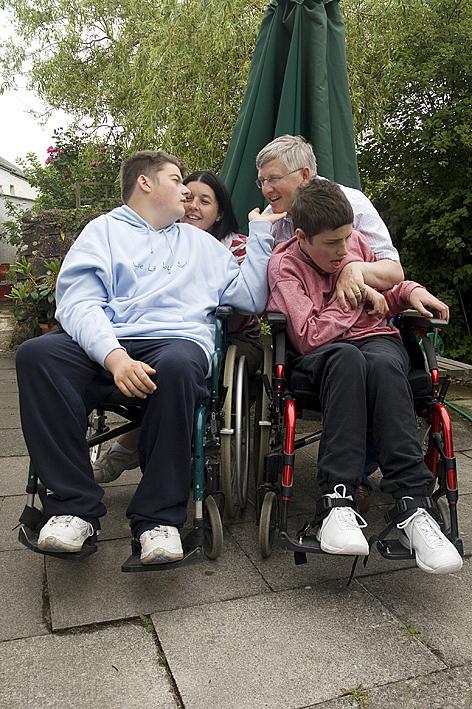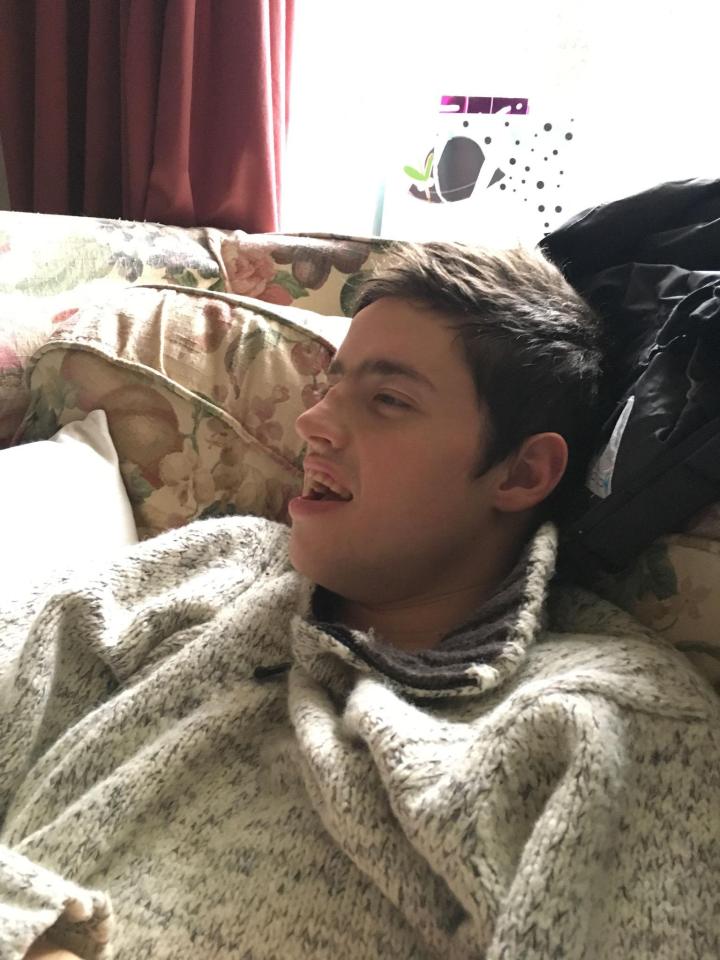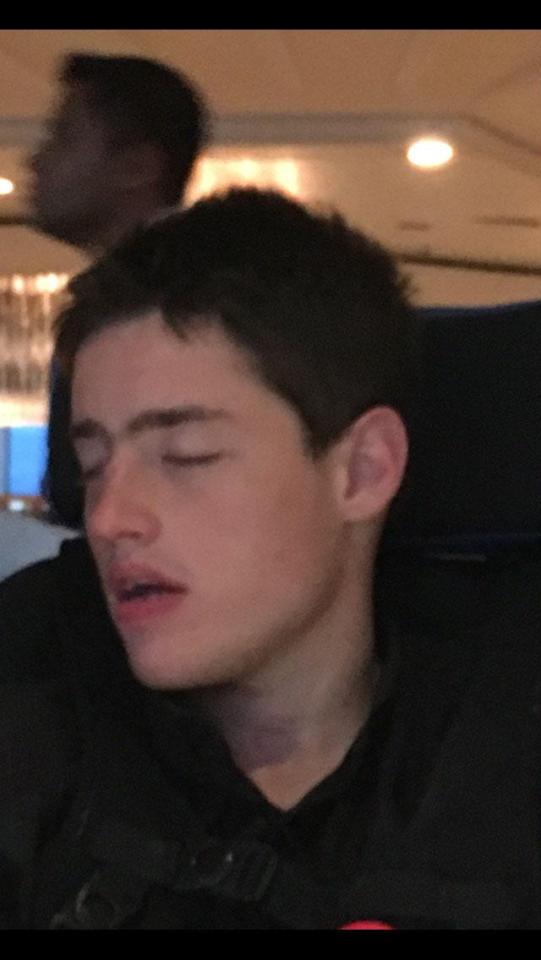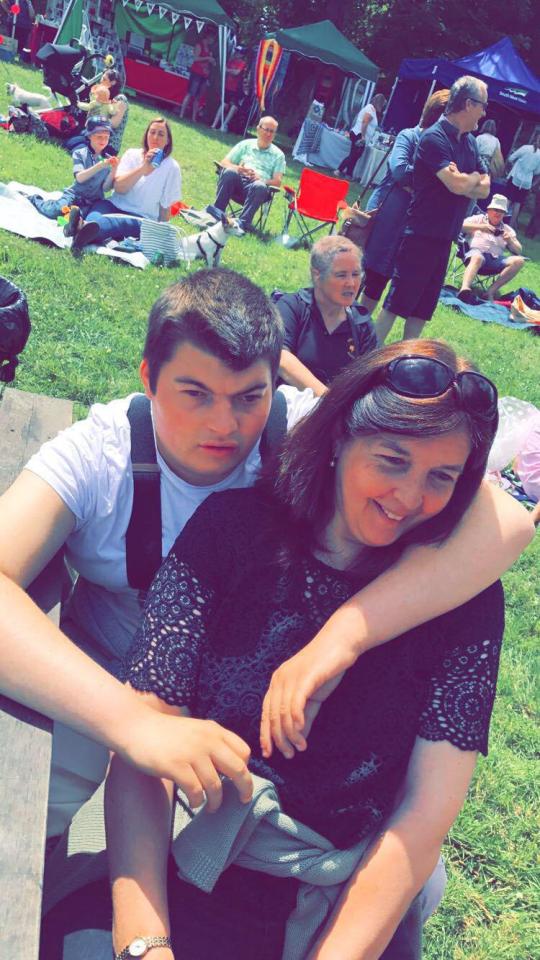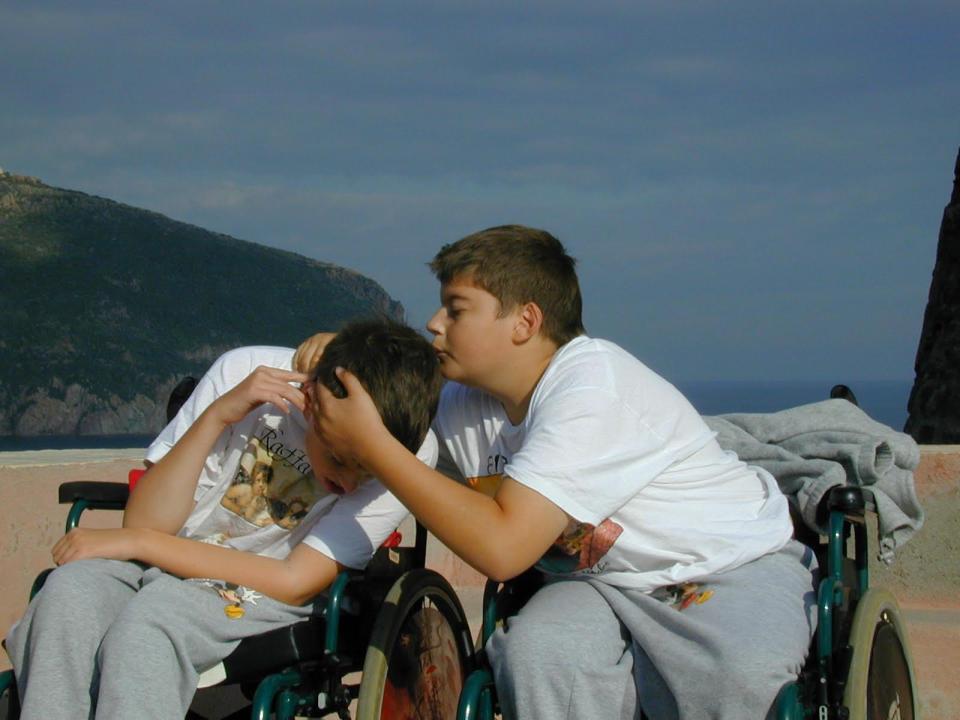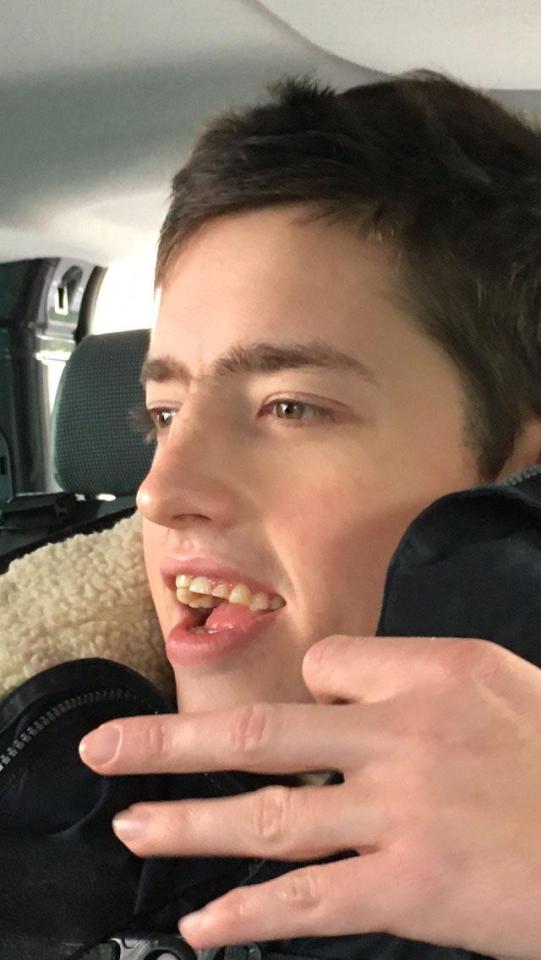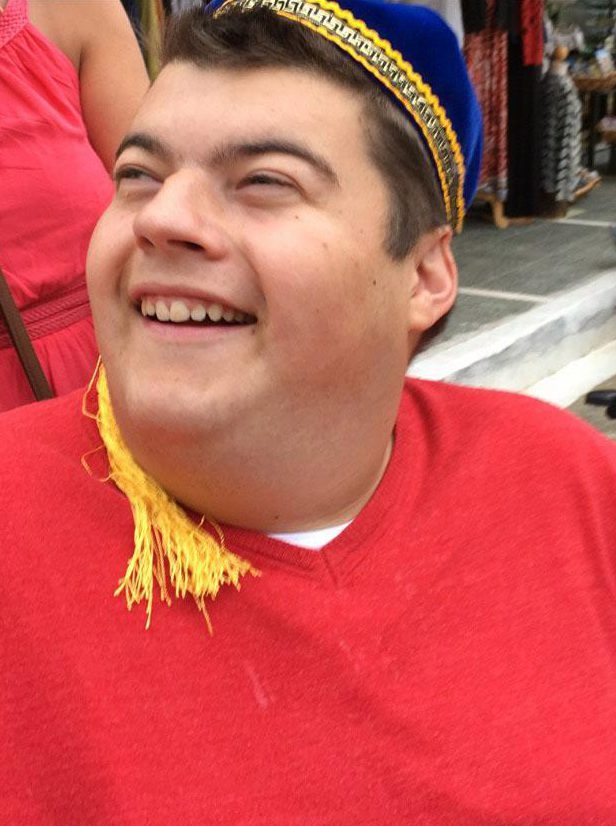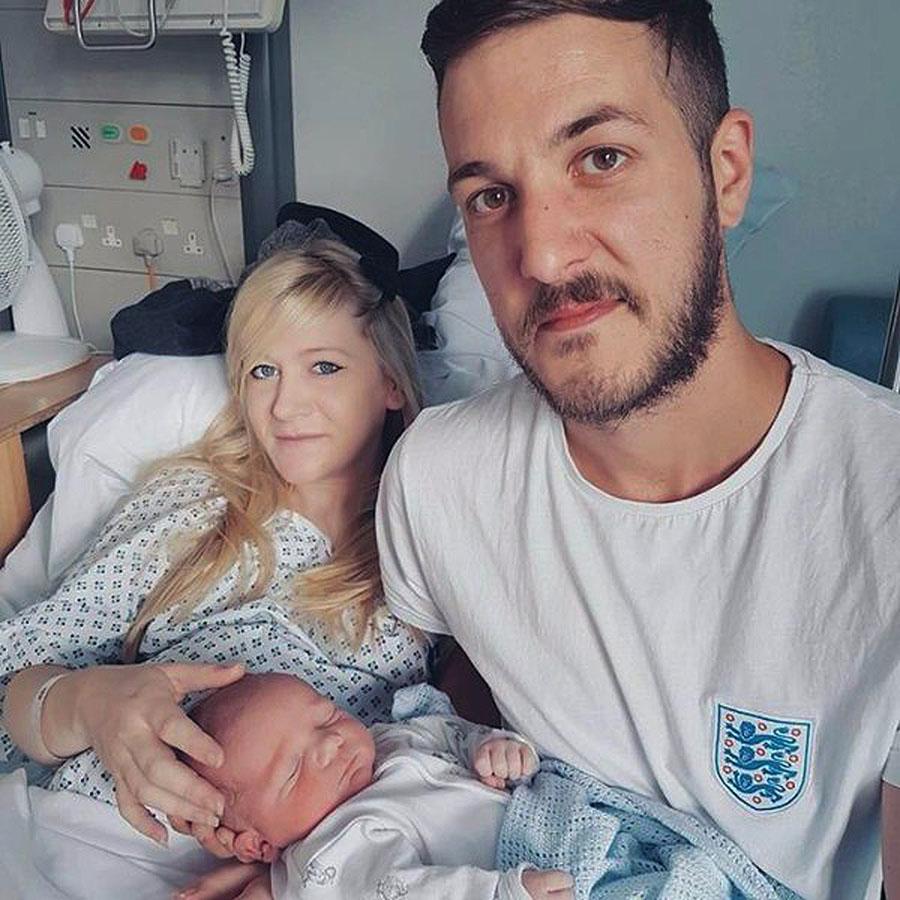Mum who raised TWO severely disabled boys reveals her daily struggle but says Charlie Gard’s parents are right to fight
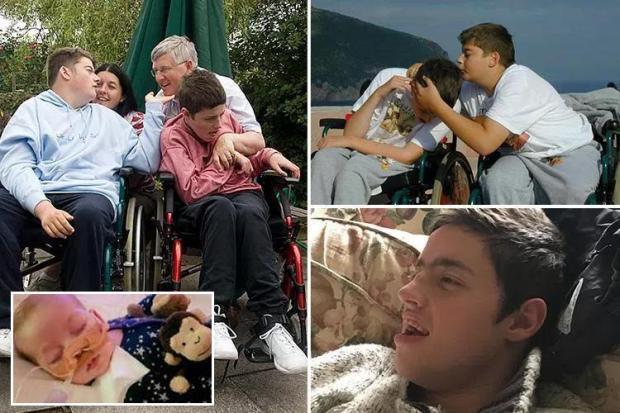
A MUM who has cared for two severely disabled sons for over 20 years has come out in support of Charlie Gard’s family.
Henrietta Spink, whose two sons Henry, 29, and Freddie, 25, both suffer with a genetic illness that leaves them needing constant care, warned that life with a helplessly disabled child is a constant battle.
But she said Charlie’s parents – Connie and Chris – are right to fight for the treatment promised by US doctors.
She said: “They have to follow their hearts.
“I believe that they will know when they need to let go of their son, if that happens, and it will be a very private process for themselves, but they are not at that stage and somebody has offered them hope. You can’t give up.”
Henrietta and husband Michael had no idea what was in store for them when Henry was born in London.
Henrietta said: “He passed all the tests at birth, and scored 10 on the APGAR chart, which measures a newborn’s physical well-being, but as soon as the cord was cut he fell asleep and he didn’t really wake up until he was three.
“He passed the six week check and I was told he was just a ‘lazy sleepy baby’ but I went to the antenatal groups and I saw that other babies were absolutely awake and mine never woke up.
“By the time he was 18 months he wasn’t sitting up, he wasn’t waking up and feeding was a nightmare, it took hours.
“They assumed he had massive brain damage in the motor part of his brain and visual because he couldn’t see, and they couldn’t believe it when the CAT scans came back normal. They were flummoxed.”
The couple were referred to Great Ormond Street where he was tested for DRD – Dopa-Responsive Dystonia – the syndrome which features in the Robin Williams film, Awakenings.
When MRI scans came back totally normal, Henrietta started her own research and ended up in the US consulting with world famous neurologist James Fallon, who did 3D MRI scans but failed to find the cause of Henry’s condition.
Four years after Henry’s birth, Freddie was born.
Henrietta said: “Freddie, they think, has the same thing but to a lesser degree. He was born with his guts in his chest and had general anaesthetic for six weeks.
“He was given a one per cent chance of survival but the surgeon told us ‘he’s a fighter.’
“But he also had a stroke while he was on a life support machine, which they missed, so he’s like a 16-and-a-half stone three-year-old.
“He’s autistic and Henry’s epileptic, and can have up to 100 fits in the night. It’s kind of full on.”
From birth, Henrietta and Michael have had to care for the boys round the clock.
Henry is completely helpless, and needs to be fed and washed by his carers, and Freddie is only slightly less dependant, but is erratic in his behaviour.
In between caring for the boys, Henrietta, 55, does six loads of washing and ironing a day as they get through up to 10 outfits.
Michael, 60, had to give up his job as an art dealer and the couple lost their home in London after an unsuccessful High Court bid to get their care package enhanced to more than the 30 hours a week originally awarded.
The 55-year-old mum says it’s not the boys that make her life difficult, but the constant battles to get them the care they need.
Henrietta said: “The boys I love unconditionally and they are a joy in my life. They are hard work but it’s the systems that have been so soul-destroying.
"I coped with one carer for 16 years. We got our first respite weekend when Henry was 16.
“The struggle with the authorities are the worst thing.
“The agony that has put us through has been soul-destroying. Everything is a negotiation and a fight. It’s utterly horrible.
“It makes a misery out of your life. It’s like somebody makes up the rules as they go along and it’s a complete lottery as to who gets help.
“We went to the high court to get a proper care package because if we were both prime carers, who would pay the mortgage?
"When we lost our house, we set sail with both boys for six months, and took two carers with us – who are now married with two children – and we ended up in Cornwall.
“It has been really challenging because it's 300 miles away from friends and family, but the care package here is now 450 hours a week.
Most Read in Living
“Michael has now reinvented himself as an academic, but we have only survived because we have really nice friends who do fundraisers for the boys.”
Henrietta now runs a charity, the , which helps other parents in similar positions deal with the authorities and learn about experimental treatments around the world.
Now she believes Charlie Gard’s parents are right to battle on in hope, after they were offered US residency to pursue treatment.
She said: “As a parent you dig very deep and your love is unconditional.
“When you have a child, you have a contract with that child. And that bond is so fierce and so phenomenal.
"I’d lay my life down for my children in a heartbeat, chop off any limb and sacrifice any organ to help them, and most parents are the same, but most parents don’t have to think about it.
“They bring up a normal kid, who goes to school and grows up as usual, but when they are really faced with it, most would lay down their lives for their kids.
“The law talks about responsibility and says you must ‘provide a home for the child, protect and maintain that child’.
“I absolutely support Charlie Gard’s parents. They gave birth to that child and it’s their legal responsibility and love has no economic boundaries.
“I can understand exactly where they’re coming from. I understand there are finite resources in the system, but if the family has raised the money and there are very serious scientists out there who are willing to step in to help, they should be given that chance.”
Henrietta also believes that the 10 per cent chance of improvement mentioned by the US doctors is worth grasping.
“Science has advanced phenomenally," she said.
“I remember Jim Fallon telling us about stroke treatment and saying, ‘I don’t think it’s worth bothering with Freddie because it would only give 10 per cent improvement’ and I gulped and thought ‘10 per cent!’
"If you went round most stroke hospitals and said that to people, they’d snatch it, 10 per cent is massive!
“It’s so easy when you are the person in the street to make that judgement, but if you stand in their place, and you feel that love, what would you do?
"People feel with a disabled child that they’re not a person and the relationship is not the same, but I think the bond is 50 times stronger.
“Other people can’t step into their shoes without truly being there. It’s so easy to judge but put yourself there and you’d want some hope if you had a loved one in that situation.”


